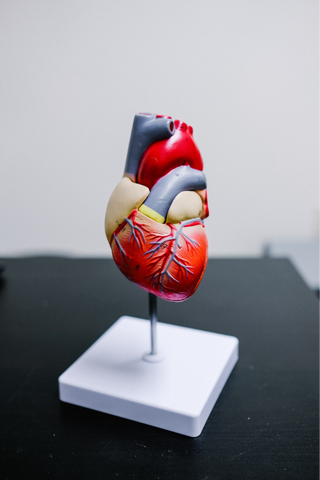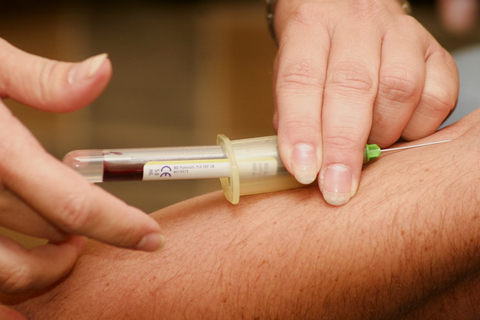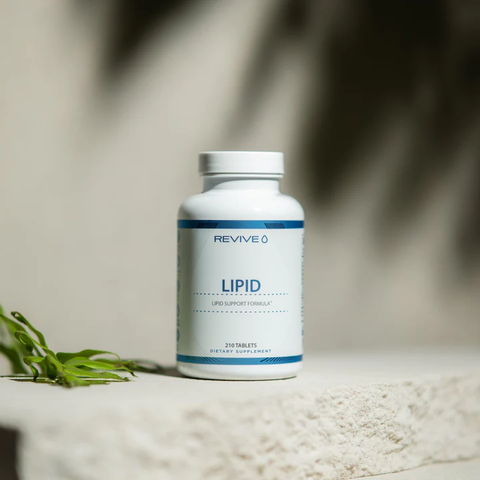Does B12 Lower Cholesterol? Uncovering the Truth
In a world where many people are trying to be more conscious of their health, being informed is so important. High cholesterol can lead to a host of other health issues for our bodies, including heart disease, heart attack, stroke, and more. While there are medications that can be prescribed, you might also be able to use certain vitamins or supplements to help regulate cholesterol levels more efficiently.
Does B12 lower cholesterol? Taking this vitamin on a regular basis can have a lot of great health benefits. It is one way to naturally lower certain cholesterol levels by improving your cardiovascular health. Here, we will dive deeper into how vitamin B12 levels might help with cholesterol and what you should know about using it.
Understanding Cholesterol

Before you can fully understand how vitamin B12 levels might impact cholesterol levels, you need to first understand what cholesterol is and the central role it plays in your health. The world's cholesterol often gets a bad reputation, but it isn’t all bad. In fact, our bodies need cholesterol to produce certain hormones as well as to build cells for the body. Without cholesterol, our body gets hung up on these tasks.
When your liver is functioning properly, it creates the cholesterol that your body needs. Some of the foods that you eat may also contribute to cholesterol, such as animal products. Most foods rich in cholesterol come from animals, such as dairy products and fatty meats. There are also some oils with saturated fat that can elevate cholesterol too.
What you need to know is that there is both good and bad cholesterol. HDL cholesterol, or high-density lipoprotein, is the good stuff. You want these numbers to be higher. Healthy levels of HDL help to protect your cardiovascular health and will protect you against heart attack, heart disease, and stroke. This type of cholesterol carries the bad stuff away from your arteries.
Then we have bad cholesterol, which is LDL, or low-density lipoprotein. The reason too much LDL is bad is because it can cause atherosclerosis, which is a buildup of plaque in your arteries. That buildup can cause your arteries to not work effectively and narrow them. That is when the risk of heart disease, stroke, and heart attack increases.
We also want to point out the triglyceride profile. Triglycerides are a type of fat in the body, but they do directly correlate with LDL cholesterol. When triglycerides and LDL cholesterol are both high, you are at a substantial risk for cardiovascular health issues.
In summary, we need cholesterol, but we also don’t want to have too much of bad cholesterol levels, which is where the need to regulate them comes into play. When cholesterol levels are out of control, your cardiovascular health is at significant risk.
How to Know if You Have High Cholesterol

Pinpointing whether or not you have high cholesterol is very hard on your own. There are some symptoms that can often be a signal that you need to watch your cholesterol, but they are not always exact. When you look at medical descriptions, the overall consensus is that there aren’t specific symptoms of high cholesterol. The most accurate way to detect and know you have high cholesterol is through a blood sample.
Your healthcare professional can run a blood sample that looks for levels of things like your LDL, HDL, triglycerides, B12, and more. In fact, if you have routine physicals or lab work, these are often a part of that process. In all actuality, people should start screening for high cholesterol by the time they are 11 years old. At this age, screenings only need to occur about every 5 years. As you get older, screenings will need to become more frequent. By the time you are 55, your cholesterol should be tested once a year.
Certain medical conditions can naturally cause high cholesterol levels. Things like diabetes, kidney disease, hypothyroidism, and lupus have all been tied to increased cholesterol levels. Medication can also affect your cholesterol levels. For the most part, unhealthy cholesterol numbers come from those disorders or one of these issues:
- Age
- Lack of exercise
- Unhealthy diet
- Body mass index
- Alcohol consumption
- Smoking habits
You can also be proactive and help prevent high cholesterol from occurring. When you focus on changing your diet and some of your daily habits, these things can go a long way to improve and manage your cholesterol. Most of the preventative methods relate directly back to these causes. For example, stopping smoking can improve cholesterol numbers. Drinking alcohol in moderation or eating a more natural diet with limited fats can also help. Exercise, weight loss, and managing stress can all play a role too.

It is important to note that even very active and healthy people can also have high cholesterol. By the time cholesterol gets high enough for you to notice any symptoms it is because those cholesterol levels are causing some sort of issue with another part of your body. This is why screening and doing your best to be proactive are so important.
What is Vitamin B12 For?
Vitamin B12 is all about cardiovascular support as well as nerve support and managing homocysteine levels. With the proper levels of B12, your body has healthier nerves and blood. These factors contribute to the creation of DNA in your body. One of the most significant things about B12 is its ability to prevent anemia, which has many negative effects.
B12 supports a lot of functions. When it is too low, you may feel weak and exhausted. You could have brain fog or decreased neurological function. All of these things are tied together. B12 most commonly comes from sources like eggs, dairy, meat, or fish. However, there are B12 vitamins as well as foods that contain fortified B12 as well. This makes B12 more accessible through other means. It is recommended that adults consume 2.4 micrograms of B12 every day.
There have been many clinical trials and previous studies that review how B12 affects us, and this includes physiological functions. Deficiency has been associated with blood pressure, heart disease, dementia, and even athletic performance issues.
Understanding B12 Deficiency
When your body is deficient in B12, you can experience a lot of side effects, particularly physiological functions. The best way to overcome them is to get a B12 injection or to start a supplement that can help to increase your intake. You can find B12 naturally in some foods as well, but if you are facing a deficiency, taking quick action will be more helpful to you.
Approximately 6% of people under the age of 60 are deficient, while nearly 20% over the age of 60 are deficient. Either way, that’s a substantial percentage. Some people may be more prone to deficiency as well, especially if they have some existing condition that may make it harder for their bodies to absorb B12.
Some of those conditions include:
- Gastritis
- Crohn’s disease
- Celiac disease
- Pernicious anemia
- Parasites
- Heavy alcoholism
- Grave’s disease
- Lupus
- Autoimmune disorders
It is also possible that some medicines that people take would affect their ability to absorb B12. The most common medicines are those for heartburn, H2 blockers, and diabetic medicines.
Being able to pinpoint the signs of deficiency is important. This way you can take action and ensure your body is getting the vitamins it needs through a supplement or another source. Many people find themselves battling anemia from B12 deficiencies. These are some of the most common symptoms:
- Weakness
- Pale skin
- Fatigue
- Heart palpitation
- Short of breath
- Nerve tingling or numbness
- Loss of vision
- Depression and behavioral changes
- Gastric problems
- Smooth tongue
These are the most common symptoms to be aware of. If you have a severe deficiency, you may need injections for a time while your body gets closer to the levels you need to maintain. A severe deficiency can quickly lead to chronic disease, coronary artery disease, adverse lipid profiles, and more. From there, you can typically use certain diet changes or vitamins to help supplement.
So, Does B12 Lower Cholesterol?
B12 might not specifically be related to cholesterol, but taking it over time certainly can contribute to reducing your cholesterol levels. Knowing that vitamin B12-deficient conditions include heart health and cholesterol levels are also tied to heart health helps us better understand how the two can correlate.
B12 can impact the metabolism of homocysteine levels, which is directly related to cardiovascular disease. When you regulate these amino acids, it naturally helps to reduce cholesterol over time through the biochemical parameters in your blood. Much research has been done on this topic and all of the research points back to B12 naturally helping lower bad cholesterol levels to healthier rates.
In addition to improving your cholesterol numbers, B12 can also provide your body with substantial cardiovascular benefits too. Overall, with vitamin B12 levels, you can reduce cholesterol and help reduce the risk of facing severe health issues such as atherosclerosis in the process. B12 doesn’t have to work alone either. For example, adding vitamin B6 or even B complex vitamins can also help reduce homocysteine levels, which directly contributes to heart health too.
You can find many studies like these, all of which have similar feedback relating to B12 helping to naturally lower cholesterol.
Work with Your Healthcare Provider
If you suspect high cholesterol or a low vitamin B12 status, it is important to work with your provider. There are a lot of continuous variables to be aware of. Yes, there are natural elements and resources out there that may help you regulate these numbers, but you also want to be sure you know the truth of where your body is at and the best way to help improve your numbers.
Once you get initial regulation under control, your healthcare professional will likely wholeheartedly support the use of supplements, vitamins, food intake, diet changes, physical activity, and natural solutions to help maintain healthy levels of B12 and cholesterol.

Conclusion
So, does B12 lower cholesterol? It certainly can! There is plenty of evidence and trial information available to reflect the ability to improve your cholesterol levels and improve other parts of your health as well. If nothing else, the benefits that B12 provides for your body improve cholesterol indirectly. Over time, B12 can help you naturally regulate and lower cholesterol as a whole.
It’s always good to work with a professional to determine where you are and the best plan of action. Learn natural ways to help your body and take action to improve. Looking for natural supplements to support B12 and healthy cholesterol levels? Check out our high-quality supplements today!
The information being presented in this blog is intended to be used as educational or resource information only. It is not intended to be a substitute for medical advice from your healthcare provider. This content should not be used for the diagnosis or treatment of any medical condition. If you have any questions or concerns about your health, please contact your healthcare provider. You should call 911 for all medical emergencies. Revive MD is not liable for any advice or information provided on this blog, which advice or information is provided on an “as-is” basis, and assumes no liability for diagnosis, treatment, decisions, or actions made in reliance upon any advice or information contained on this blog. No warranties, express or implied, are made on the information that is provided.





 Liver & Detox Support
Liver & Detox Support
 Gut & Digestive Health
Gut & Digestive Health
 Hormones, Stress & Metabolism
Hormones, Stress & Metabolism
 Sleep & Relaxation
Sleep & Relaxation
 Heart, Brain & Immune Health
Heart, Brain & Immune Health
